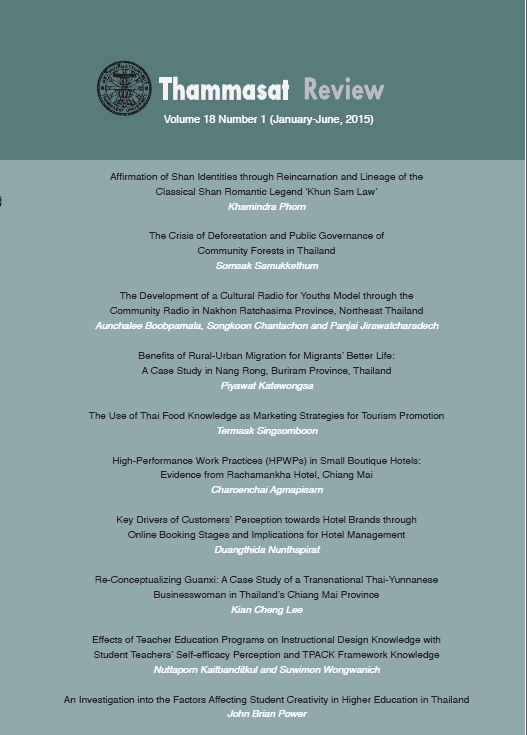The Crisis of Deforestation and Public Governance of Community Forests in Thailand
Abstract
This paper argues that the Thai state’s forest management since 1896 has
been centralized in accordance with the traditional public administration regime, with
its emphasis on top-down control without consultation or local people’s participation.
This regime resulted in deforestation and crisis, which led to social conflicts during in
the 1970s and 1980s. The Thai state was ineffective in managing this severe problem
and then, in the late 1990s, it shifted its forest management policy to the New Public
Governance regime by granting communities’ rights in forest management. This new
management policy features collective public leaderships, working networks and the
use of soft instruments of dialogue and mutual learning, which results in protection for
the forest but also recovery in many devastated areas.
Downloads
Published
How to Cite
Issue
Section
License
Copyright (c) 2017 Thammasat Review

This work is licensed under a Creative Commons Attribution-NonCommercial-NoDerivatives 4.0 International License.
The opinions and ideas expressed in all submissions published in Thammasat Review are solely that of the author(s) and do not necessarily reflect that of the editors or the editorial board.
The copyright of all articles including all written content and illustrations belong to Thammasat Review. Any individuals or organisation wishing to publish, reproduce and distribute a particular manuscript must seek permission from the journal first.








